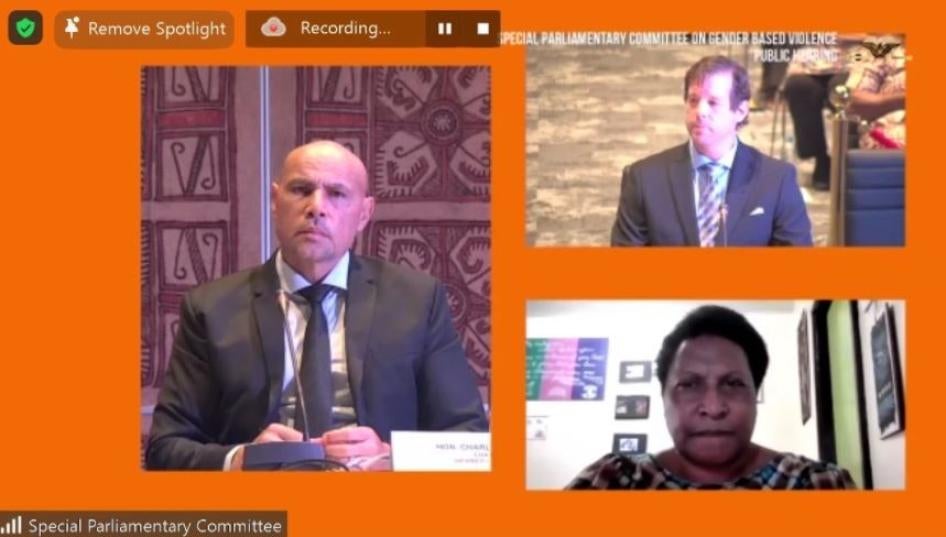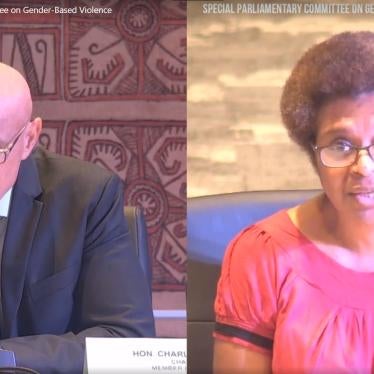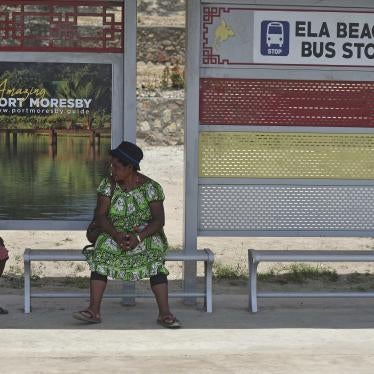A woman is beaten every 30 seconds in Papua New Guinea, and more than 1.5 million people experience gender-based violence in the country each year.
On 3 September in Mt Hagen, one of the country’s largest cities, three men were released from prison after being accused of murdering a 31-year-old woman, Imelda Tupi Tiamanda. One of the men was her husband.
The magistrate dismissed the charges, citing a lack of evidence. The decision was made even though police found the deceased woman’s body wrapped in tarpaulin in the back of her husband’s vehicle at a police checkpoint, with the other two co-accused men present, the National reported. When questioned by police, the husband allegedly confessed to the murder.
Between May and June, groups of men violently attacked at least five women they accused of “sorcery”. One of the women was killed.
In May, a special parliamentary committee on gender-based violence convened a three-day inquiry to investigate measures to prevent violence against women and girls. It heard gender-based violence had increased due to the Covid-19 pandemic. Ruth Kissam of the PNG Tribal Foundation says accusations of “sorcery” may have also increased.
The inquiry found there was lack of support, funding and coordination from the government to adequately respond to the number of cases of violence against women and girls Papua New Guinea has each year. In 2020, 15,444 cases of domestic violence were reported but only 250 people were prosecuted, and fewer than 100 people were convicted. Both the minister for police, William Gogl Onglo, and the police commissioner, David Manning, told the inquiry that the police force could not keep women and children safe. They also said the force did not have enough resources to ensure thorough investigations took place.
The lack of funding and services has meant police and the government rely heavily on the work of civil society, churches, and volunteer human rights defenders to fill a growing gap in services. Human Rights Watch has raised this issue for many years.
The parliamentary inquiry issued a report in August and made 71 recommendations to the parliament. The inquiry and its report are a positive and long overdue step in the right direction. Government funding is urgently needed along with a concrete plan to carry out the recommendations to ensure that women and girls in Papua New Guinea can live in safety.
The recommendations include providing adequate resources to carry out the sorcery accusation-related violence national action plan, funding additional counselling services and providing adequate resources to the country’s health department to provide family planning and reproductive health services. The inquiry’s report also recommends fixing the justice system to ensure better police responses and investigation of gender-based violence cases, more timely prosecutions, and survivor-centered court processes.
After the committee issued its report, it met with development partners such as representatives from the UN, UK, New Zealand, US, Australia and the European Union to discuss partnerships to end violence against women and girls. Papua New Guinea’s prime minister, James Marape said at the UN general assembly on 25 September that his government was working towards implementing the committee’s recommendations. How the government is planning to do so is still unknown.
The committee plans to hold a second set of hearings late this year which will address how the government can carry out these recommendations.
The onus of implementing the parliamentary inquiry report is now with the Papua New Guinea government. The government should act on the 71 recommendations without delay to address the scourge of violence against women and girls in the country.
The governor for the National Capital District, Powes Parkop, one of the members of the special parliamentary committee, noted at the inquiry that a lack of capacity and resources in the courts “has led to a culture of impunity, with perpetrators confident they will never be brought to justice”.
Imelda Tupi Tiamanda and other victims of gender-based violence deserve better.










